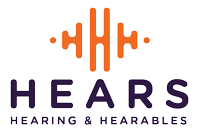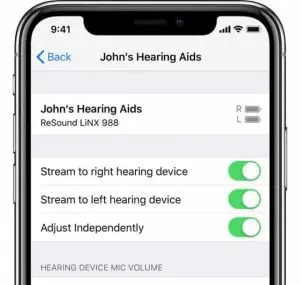Why Choosing the Right Hearing Aid Provider Matters ; And Why Hears Hearing & Hearables (HHH) Network is the Smart Choice
Shopping for hearing aids is not like shopping for glasses, and understanding the difference is key to making an informed decision. With glasses, your eye doctor gives you a prescription, and you can take that anywhere, to a boutique, an online store, or your optometrist’s office, where you’ll find countless frame styles and lens options from various brands. Unfortunately, the same freedom of choice rarely applies when it comes to hearing aids.
Limited Options: The Hidden Truth Behind Hearing Aid Providers
Many consumers don’t realize how limited their choices really are when it comes to hearing aids. That’s largely due to how hearing aid manufacturers and insurance companies work together.
Some hearing care providers are contractually obligated to recommend only certain brands, even if other options might be a better fit for your specific hearing loss. These exclusive agreements can benefit providers through manufacturer discounts or rebates, but they can severely restrict your access to the best device for your individual needs.
Why Manufacturer Independence Matters
Your hearing profile is as unique as your fingerprint. Hearing loss varies by frequency, pitch, and environment, meaning one-size-fits-all solutions simply don’t work. Choosing a hearing aid should be about what works best for you, not what works best for the provider’s bottom line.
Just like not every brand-name medication works the same for every patient, not every hearing aid brand performs equally for every type of hearing loss. Some brands are better for speech clarity, others excel in noisy environments. That’s why having a wide range of options truly matters.
How to Choose the Best Hearing Aid Provider
When evaluating providers, ask the right questions to protect your hearing health:
- Is the provider independent or part of a larger corporation?
Independent providers are more likely to offer multiple brand options tailored to your needs. - Is there a financial relationship between the provider and specific manufacturers?
Ask if the provider is incentivized to recommend certain brands over others. - Is your provider recommended by insurance?
If so, check if a third-party payer is steering them toward one manufacturer. - Do they always suggest the same brand to all patients?
A reputable provider should be able to give references from patients using different brands. - What is their follow-up process like?
Ensure they offer post-fitting adjustments and fully support your 45-day trial period.
Why More People Are Choosing HHH, Audiology
At HHH, we believe in personalized care, not corporate agendas. We are a fully independent hearing aid provider. This means we work for you, not a manufacturer. We offer hearing aids from a variety of top brands and carefully match each patient with the device that best suits their lifestyle and hearing goals.
Backed by a Trusted Professional Network
Our private clinic, Hears to U, Audiology, is proud to be part of the Hears Hearing & Hearables Professional Provider Network, a carefully curated group of independent audiologists and hearing care professionals who are committed to the highest standards of ethics, transparency, and patient-centered care. This network operates under a strict policy that ensures all providers uphold best practices as defined by leading professional organizations. That means every provider in our network is held accountable to deliver ethical, transparent, and evidence-based care — without manufacturer bias or corporate influence. Through our network, we share clinical knowledge, stay current with evolving best practices, and collaborate to deliver better patient outcomes, whether in-person or via telehealth. This partnership reinforces our dedication to providing personalized care while empowering patients with choices, education, and support at every step of their hearing journey.
Our commitment is simple: to help you hear your best, wherever life takes you. Talk with us, we’ll guide you through the process, answer all your questions, and give you the freedom to choose what’s right for your ears.
Discover the difference independence makes!





